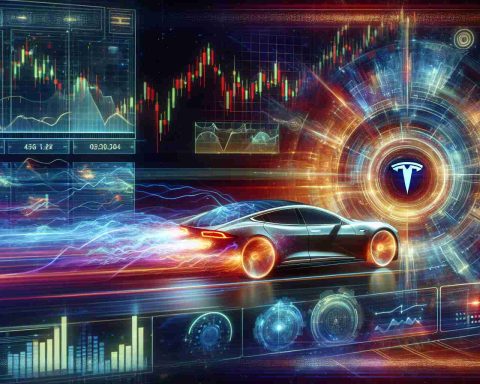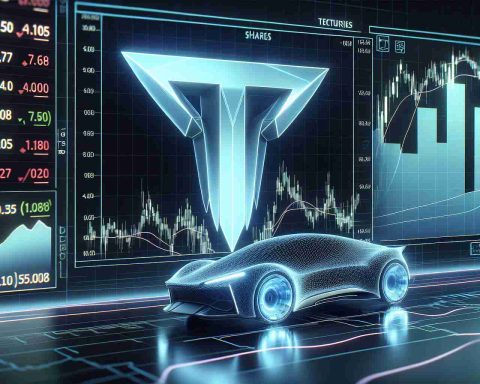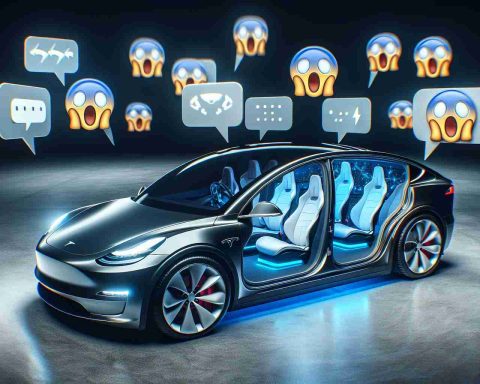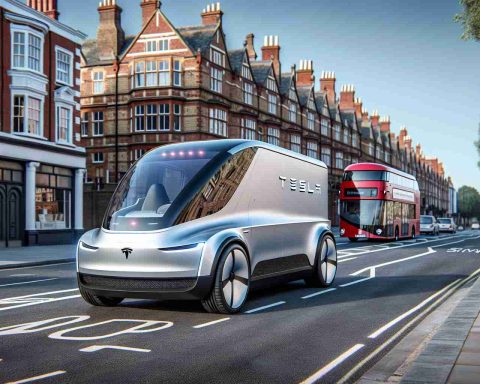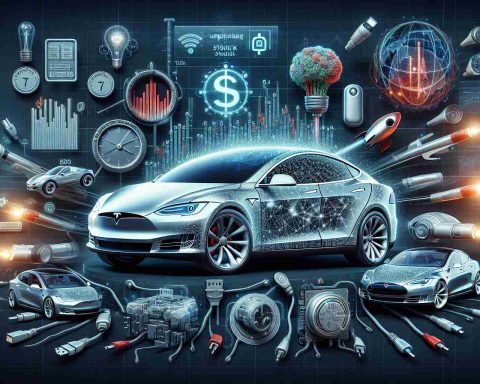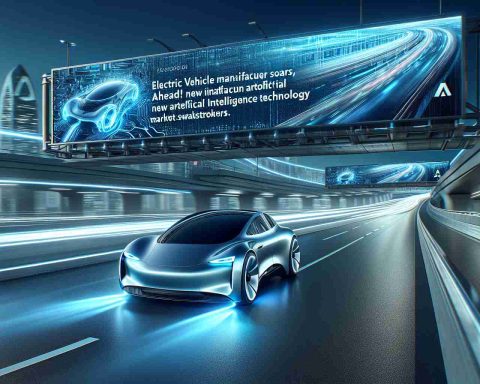Exciting Electric Vehicle Market in 2025
In the fiercely competitive electric vehicle landscape, the 2024 Tesla Model Y and Ford Mustang Mach-E have emerged as frontrunners, capturing the attention of drivers across the U.S. The Model Y stood as the best-selling electric vehicle last year, while the Mustang Mach-E secured an impressive third place, solidifying its position as a formidable contender since its launch in 2019.
Attractive Leasing Options
Ford is surprising many with its competitive leasing programs that rival those of Tesla. While Tesla is very transparent about its $7,500 federal credit integrated into monthly payments for the Model Y, Ford’s approach is a bit more subtle. The automaker encourages customers to inquire about how these incentives can affect leasing costs or down payments.
Lease Deals Comparison
In Los Angeles, competitive offers for the Mustang Mach-E Premium are available at around $377 per month, requiring a $3,000 down payment for a 36-month lease. This pricing closely matches the $378/month lease for the Model Y. For those seeking more budget-friendly options, the Mustang Mach-E Select can be leased for approximately $303 per month.
In terms of technology, the Mach-E Premium includes a 90-day trial of Ford’s BlueCruise, comparable to Tesla’s standard Autopilot feature. As electric SUV offers evolve, 2025 seems to promise exciting choices for consumers.
The Emerging Landscape of Electric Vehicles: Broader Implications
The growth of the electric vehicle (EV) market, as exemplified by models like the Tesla Model Y and Ford Mustang Mach-E, signals not only a shift in consumer preferences but also profound impacts on society, culture, and the global economy. As EV adoption ramps up, we can anticipate a greater societal emphasis on sustainability, with consumers increasingly prioritizing eco-friendly options. This trend could revolutionize cultural norms surrounding transportation, establishing a new standard of environmental responsibility.
Moreover, the burgeoning EV market may lead to substantial economic shifts. The increased demand for electric vehicles could bolster job creation in manufacturing, battery production, and technology development. According to the International Energy Agency, the global electric vehicle stock surpassed 10 million units in 2020, suggesting a relentless trend toward electrification that will stimulate the economy further in the coming decade.
However, these advancements do not come without consequences. The environmental implications of sourcing materials like lithium and cobalt for EV batteries pose serious questions about sustainability practices. As the world leans toward electric mobility, the need for responsible mining and recycling methods will grow ever more urgent.
Looking towards the future, we anticipate that innovations in battery technology will not only improve vehicle performance but could also revolutionize energy storage systems, impacting how we approach energy consumption globally. As society communes around cleaner alternatives, the lasting significance of these developments could reshape our urban landscapes, social behaviors, and economic policies for generations to come.
Unveiling the Future of Electric Vehicles: What to Expect in 2025
The Thriving Electric Vehicle Market in 2025
As we approach 2025, the electric vehicle (EV) market is set to evolve dramatically, with multiple players vying for dominance. The competition has intensified, particularly between the 2024 Tesla Model Y and the Ford Mustang Mach-E, which have distinguished themselves in the U.S. EV landscape. The Model Y continues to be the top-selling electric vehicle, with the Mustang Mach-E following closely behind at third place, marking its strong presence since its introduction in 2019.
Leasing Trends and Financial Incentives
The financial landscape for leasing electric vehicles is becoming more competitive and attractive for consumers. Ford is stepping up its game with leasing options that rival Tesla’s, particularly noteworthy given Tesla’s transparency regarding federal credits. The Model Y integrates a $7,500 federal credit into monthly payments, providing a clear financial incentive for potential buyers.
For those considering leasing, it’s essential to be aware of how these credits can influence leasing rates. Ford encourages potential lessees to inquire about the effects of federal incentives on their payments. This strategic approach can significantly impact overall lease costs.
Comparative Lease Pricing Analysis
In major markets like Los Angeles, the EV leasing scene is heating up. Current offers for the Mustang Mach-E Premium are around $377 per month, with a required down payment of $3,000 for a 36-month lease. This pricing is competitive with the Tesla Model Y, which is available for approximately $378 per month under similar lease terms. For budget-conscious consumers, the Mustang Mach-E Select offers leasing options starting at roughly $303 per month, making it a more accessible choice.
Additionally, technology features play a crucial role in the decision-making process for consumers. The Mustang Mach-E Premium includes a 90-day trial of Ford’s BlueCruise, which is comparable to Tesla’s Autopilot, providing advanced driver assistance capabilities right out of the gate.
Innovative Features Shaping the Future
The 2025 electric vehicle market is not just about price; it also revolves around innovation and advanced technology. Both Tesla and Ford are continually enhancing their offerings with cutting-edge features:
– Autonomous Driving Technologies: The vehicles are equipped with advanced driver-assistance systems that are steadily approaching full automation, with improvements expected in navigation, traffic assistance, and lane-keeping.
– Battery Efficiency and Range: The focus on developing longer-lasting batteries with quicker charging capabilities is paramount, with predictions suggesting that ranges will exceed 300 miles for many new models.
– Sustainability Initiatives: Both companies are increasing their commitment to sustainability, with initiatives aimed at reducing carbon footprints in manufacturing processes and improving recycling programs for batteries.
Market Insights and Future Predictions
As of 2025, the electric vehicle market is projected to grow exponentially, driven by increasing consumer demand and favorable government policies aimed at reducing carbon emissions. Market analysts predict that EV sales could account for nearly 30% of all vehicle sales by 2030, as consumers become more aware of climate issues and seek environmentally friendly transportation alternatives.
In summary, the electric vehicle market in 2025 promises to offer a diverse range of options characterized by attractive leasing programs, advanced technologies, and a strong focus on sustainability. With players like Tesla and Ford leading the charge, the future of mobility is electric.
For more information on EV trends and updates, visit Forbes.



